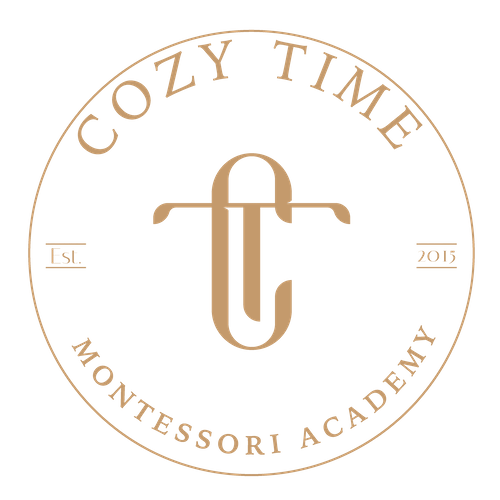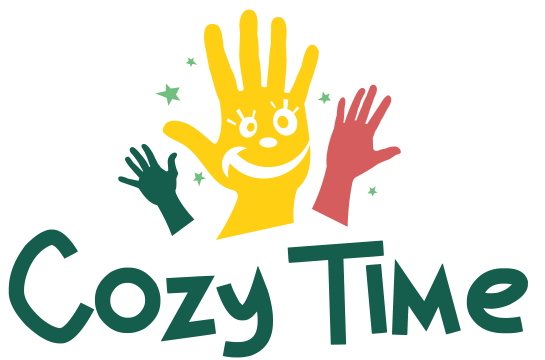The Joy of Discovery: A Personal Journey with Montessori-Friendly Toys and Materials
As a seasoned educator with over 15 years of experience in Montessori education, there is no greater joy than witnessing the spark of discovery in a child’s eyes. This spark, I’ve found, is ignited most often when children interact with Montessori-friendly toys and materials.
When my son was born, I was determined to provide him with an enriching environment that would stimulate his curiosity and foster a love for learning. As a resident of Toronto, I was fortunate enough to have access to Cozytime, a licensed Montessori daycare center. It was here that I first understood the profound impact of Montessori toys and materials on a child’s development.
Unlocking Potential: The Power of Montessori Playthings in Child Development
Montessori-friendly toys and materials are different from traditional toys. They are carefully designed to promote cognitive, emotional, physical, and social development.
Cognitive Development
Children are naturally curious. Montessori toys are designed to fuel this curiosity and encourage independent exploration. For example, a simple wooden puzzle can teach a toddler about shapes, colours, and problem-solving skills.
Emotional Development
Montessori materials help children develop their emotional intelligence. Toys that require sorting or sequencing, for instance, can help a child learn patience and focus.
Physical Development
Many Montessori toys also promote physical development. Think of a bead threading set that enhances fine motor skills or a balance board that improves gross motor skills and coordination.
Social Development
Through shared play experiences with Montessori materials, children learn important social skills. They learn to share, cooperate, and communicate effectively with their peers. In addition to enhancing their social skills, these interactions foster creativity and problem-solving abilities among children. Engaging in hands-on activities, such as montessori arts and crafts ideas, allows them to express themselves artistically while working collaboratively. These experiences not only build friendships but also instill a sense of community and teamwork.
Choosing the Right Tools: Elements to Look for in Montessori Friendly Toys and Materials
With a plethora of options available, how do you choose the right Montessori-friendly toys and materials? Here are a few guiding principles:
- Purposeful: Montessori toys should have a clear purpose that supports learning and development.
- Simple: The best Montessori materials are simple in design, free from bells and whistles that can distract the child.
- Durable: Opt for toys made from high-quality, natural materials that will withstand years of exploration.
- Adaptable: Toys should be adaptable to the changing needs and abilities of the child.
Exploring the world through Montessori-friendly toys and materials has been a rewarding journey for my son and countless other children at Cozytime daycare. If you’re in Toronto and would like to enhance your child’s learning experience with Montessori, don’t hesitate to reach out at (416) 602 3811.
Building Blocks of Growth: Montessori Toys for Infants (0-12 months)
In the early months of my son’s life, I was introduced to the fascinating world of Montessori. The philosophy resonated with me on so many levels, particularly the emphasis on providing a prepared environment that encourages self-directed learning. One of the key elements of this environment is the use of Montessori toys.
Unlike traditional toys that often do the ‘playing’ for the child, Montessori toys are designed to inspire active learning and exploration. They are typically made of natural materials and are simple in design, allowing the infant to focus on mastering one skill at a time. Here at Cozytime Child Care in Toronto, we carefully select toys that foster sensory exploration, hand-eye coordination, and problem-solving abilities.
Montessori Toys for Toddlers (1-3 years)
As my son entered his toddler years, his curiosity and desire to explore became more pronounced. Like many toddlers his age, he enjoyed activities that allowed him to use his hands and interact with his environment. This stage is where Montessori toys truly shine.
In our daycare, we provide a variety of Montessori toys that cater to toddlers’ needs. These toys are designed to engage their senses, develop their motor skills, and cultivate their problem-solving abilities. Some favorites include stacking blocks, shape sorters, and threading beads. Each toy is thoughtfully selected, ensuring it aligns with the Montessori philosophy of promoting independence and self-directed learning.
Montessori Toys for Preschoolers (3-6 years)
By the time children reach the preschool age, they are ready for more complex tasks. Montessori toys for this age group are designed to foster cognitive development, language skills, and social-emotional growth.
At Cozytime, we provide a range of toys such as puzzles, counting beads, and sandpaper letters. These toys not only keep the children engaged but also build the foundation for reading, writing, and math skills. Through these toys, children learn at their own pace, in an environment that respects and encourages their individual growth.
Curated Learning: Top 10 Best Montessori-Friendly Toys available in the Market
Over my years as a Montessori practitioner, I’ve come across a multitude of toys that align with the Montessori philosophy. Here, I’ve curated a list of the top 10 Montessori-friendly toys that are loved by both children and educators. These toys are not only engaging but also foster a variety of skills, from fine motor development to critical thinking.
Whether you’re a parent looking for Montessori-inspired toys for your child or a daycare provider seeking to enrich your environment, these toys are sure to be a hit.
Exploring Creativity: DIY Montessori Materials Ideas and Implementation
One of the most rewarding aspects of the Montessori philosophy is its flexibility. While there are numerous Montessori-friendly toys available in the market, there’s also a wealth of possibilities in creating your own.
DIY Montessori materials can be a wonderful way to engage with your child’s learning process. From homemade sensory bins to DIY counting beads, these projects can be as simple or as complex as you want them to be. Not only do they provide a cost-effective alternative, but they also allow you to tailor the materials to your child’s interests and developmental stage.
At Cozytime, we regularly incorporate DIY Montessori materials into our daycare program. The children love these unique, hands-on learning experiences, and we love seeing their creativity and independence flourish.
In summary, whether it’s carefully selected toys or DIY materials, the Montessori approach provides a rich, engaging learning environment for children. If you’re in the Toronto area and are interested in learning more about our Montessori program at Cozytime Child Care, feel free to reach out at (416) 602 3811.

